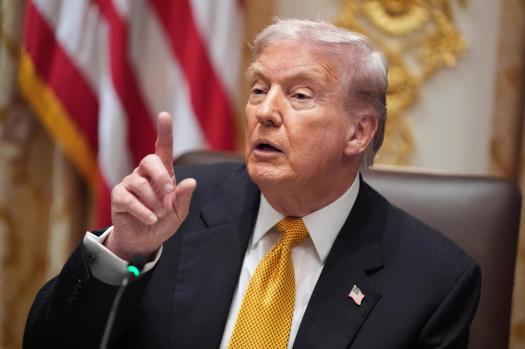UPDATE: In a striking reminder of past insights, former President Donald Trump is facing renewed scrutiny over his 1990 remarks advocating for the legalization of drugs as a solution to America’s ongoing drug crisis. At a luncheon hosted by the Miami Herald in April 1990, Trump declared, “We’re losing badly the war on drugs,” emphasizing that legalizing drugs would be essential to dismantling the profits of drug cartels.
This urgent discussion comes amidst alarming statistics showing a surge in drug-related deaths, particularly linked to the ongoing opioid crisis fueled by synthetic opioids like fentanyl. The Cato Institute reports that the United States has expended over $1 trillion since the 1970s in efforts to combat drug trafficking, yet the situation has worsened, with overdose deaths reaching unprecedented levels.
In a recent press conference on October 15, 2023, Trump reiterated his tough stance, claiming that intercepting drug boats in the Caribbean could save “25,000 American lives” each time. However, critics argue this assertion lacks credibility, highlighting that the majority of fentanyl smuggling involves American citizens, according to the American Immigration Council.
Trump’s earlier insights align with those of economist Milton Friedman, who in 1991 compared the drug crisis to the failures of alcohol prohibition, noting that prohibition leads to increased violence and health risks. Friedman stated, “The same thing happened under prohibition of alcohol as is happening now,” indicating a clear historical parallel that raises questions about the efficacy of current drug policies.
The conversation around drug legalization has gained traction as advocates argue for a shift in focus from punitive measures to treatment and harm reduction. As drug-related deaths continue to rise, the call for a reassessment of drug policy is more pressing than ever.
Authorities and experts urge that the time has come for politicians to demonstrate the courage necessary to confront the realities of drug prohibition, echoing Trump’s past sentiments. The ongoing debate is critical, as communities across the nation grapple with the devastating impacts of the drug war.
As this story develops, the implications for future drug policies and public health are profound. The urgent need for a comprehensive overhaul of American drug strategy that prioritizes public health over criminalization is clearer than ever.
Stay tuned for more updates as this critical issue unfolds.







